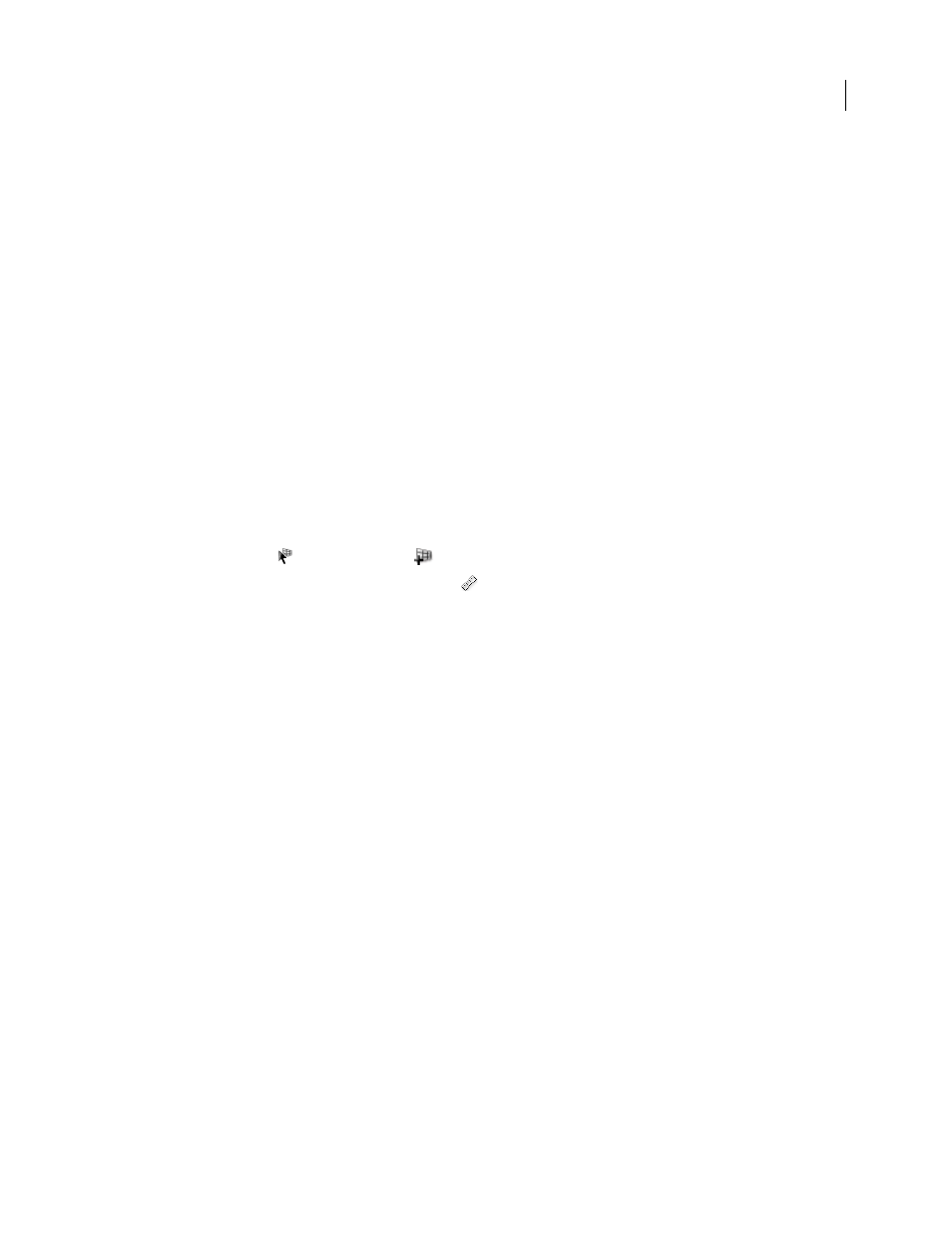About selections in vanishing point – Adobe Photoshop CS3 User Manual
Page 238

PHOTOSHOP CS3
User Guide
231
Bounding box and grid alerts in Vanishing Point
The bounding box and grid change colors to indicate the plane’s current condition. If your plane is invalid, move a
corner node until the bounding box and grid are blue.
Blue
Indicates a valid plane. Keep in mind that a valid plane doesn’t guarantee results with the proper perspective.
You must make sure that the bounding box and grid accurately line up with geometric elements or a plane area in
the image.
Red
Indicates an invalid plane. Vanishing Point cannot calculate the plane’s aspect ratio. You won’t be able to tear off
a perpendicular plane from a red invalid plane. Although it’s possible to make edits in a (red) invalid plane, the results
will not be oriented properly.
Yellow
Indicates an invalid plane. All the vanishing points of the plane cannot be resolved. Although it’s possible to
tear off a perpendicular plane or make edits in a yellow invalid plane, the results will not be oriented properly.
Show or hide the grid, active selections, and perspective plane boundaries
❖
Choose Show Edges from the Vanishing Point menu.
Note: Selections temporarily show when they are resized or repositioned even if Show Edges is turned off.
Adjust the spacing of the perspective plane grid
❖
Do any of the following:
•
Select the Edit Plane
or the Create Plane
tool, and then enter a Grid Size value in the tool options area.
•
(Photoshop Extended only) Select the Measure tool
and then select Link Measurements To Grid in the tool
options area. Drag the Measure tool in a plane and enter a Length value in the tool options area.
About selections in Vanishing Point
Selections can be helpful when you’re painting or retouching to correct flaws, add elements, or enhance an image. In
Vanishing Point, making selections let you paint or fill specific areas in an image while honoring the perspective
defined by the planes in the image. Selections can also be used to clone and move specific image content in
perspective.
Using the Marquee tool in Vanishing Point, you draw a selection within a perspective plane. If you draw a selection
that spans more than one plane, it wraps to conform to the perspective of each plane.
Once a selection is drawn, you can move it anywhere in the image and maintain the perspective established by the
plane. If your image has multiple planes, the selection conforms to the perspective of the plane it’s moved through.
Vanishing Point also lets you clone the image pixels in a selection as it is moved in an image. In Vanishing Point, a
selection containing image pixels that you can move anywhere in the image is called a floating selection. Although
not on a separate layer, the pixels in a floating selection seem to be a separate layer hovering above the main image.
While active, a floating selection can be moved, rotated, or scaled.
Note: When you paste an item into Vanishing Point, the pasted pixels are in a floating selection.
Clicking outside a floating selection deselects it. Once deselected, a floating selection’s content is pasted into the
image, replacing the pixels that were below it. Cloning a copy of a floating selection also deselects the original.
Vanishing Point has another move option for selections. You can fill the selection with pixels from the area where
the pointer is moved.
